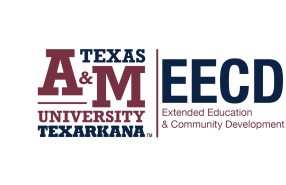
- Description
- Objectives
- Outline
- Materials
- Certification
- System Requirements
- Watch a Demo
In our Physical Therapy Aide Specialist program, you will learn all the skills needed to begin a career as a physical therapy aide. You will learn what physical therapy includes, identify the responsibilities of a physical therapy aide, and cultivate a working knowledge of anatomy and medical terminology.
Medical Terminology
Quickly master the basics of medical terminology and begin speaking and writing terms almost immediately! This course omits time-consuming, nonessential information and helps you build a working medical vocabulary of the most frequently encountered suffixes, prefixes, and word roots. Medical terms are introduced in the context of human anatomy and physiology to help you understand exactly what they mean, and case studies, vignettes, and activities demonstrate how medical terms are used in practice.
Prerequisite(s): None
Physical Therapy Aide
A physical therapy aide most often works under the direction of a physical therapist and/or physical therapy assistant. Physical therapy aide jobs often include keeping the treatment area clean and well organized, as well as to help escort patients in wheelchairs, perform clerical duties, order supplies and more. A physical therapy aide generally needs to be well organized, have patience, and enjoy working with others.
Prerequisite(s): None
** Course Subject to Change.
Medical Terminology
After completing this course, you should be able to:
- Identify how to gain and understand the basic word structure in medical terminology
- Recognize how to relate the medical terms to the structure and function of the human body
- Identify body systems, body cavities, and planes of the body
- Define words by dividing them into their component parts
- Recall the terminology used with medical specialists and case reports
Physical Therapy Aide
At the completion of this course you should be able to:
- List the core elements of medical terminology
- Name the core elements of the physical therapy profession
- Identify the systems of the body and their functions
- Recall the steps to treat common medical disorders
- Recognize the steps to turn, transfer, and position patients
Medical Terminology
Medical Terminology Module 1
Basic Word Structure
- Word Analysis
- Combining Forms
- Suffixes & Prefixes
- Pronunciation of Terms
- Exercises & Applications
Medical Terminology Module 2
Organization of the Body
- Body Systems and Cavities
- Divisions of the Back
- Planes of the Body
- Pronunciation of Terms
- Exercises & Applications
Medical Terminology Module 3
Suffixes
- Introduction to Suffixes
- Suffixes and Terminology
- Diagnostic & Procedural Suffixes
- Pronunciation of Terms
- Exercises & Applications
Medical Terminology Module 4
Prefixes
- Combining Forms & Prefixes
- Prefixes and Terminology
- Define Common Prefixes
- Pronunciation of Terms
- Exercises & Applications
Medical Terminology Module 5
Medical Specialists & Case Reports
- Medical Specialists
- Combining Forms & Vocabulary
- Case Reports & Terminology
- Pronunciation of Terms
- Exercises & Applications
Medical Terminology Module 6
Body Systems – Part 1
- Cardiovascular System
- Digestive System
- Endocrine System
- Female Reproductive System
- Lymphatic System
Medical Terminology Module 7
Body Systems – Part 2
- Male Reproductive System
- Musculoskeletal System
- Nervous System
- Respiratory System
- Skin & Sense Organs
- Urinary System
**Outlines are subject to change, as courses and materials are updated.**
Physical Therapy Aide
Physical Therapy Aide Module 1
Medical Terminology Review
- Pronunciation
- Spelling
- Word Roots
- Combining Vowels/Form
- Prefixes
- Suffixes
- General Rules
- Word Building
- Abbreviations
- Procedural and Diagnostic Billing Codes
- Body Structure
- Organization of the Body
- Anatomical Position
- Body Planes
- Directional and Positional Terms
- Body Cavities
Physical Therapy Aide Module 2
The Profession of Physical Therapy
- The Healthcare Team
- Interprofessional Collaboration
- Effective Teamwork
- Communication Skills
- Patient Communication
- Informed Consent
- Effective Listening
- Patient Safety
- Emergency Situations
- Pain Management
Physical Therapy Aide Module 3
Documentation and Therapeutic Exercises
- Documentation Guidelines
- Documentation Elements
- International Classification of Functioning, Disability & Health (ICF)
- Electronic Medical Documentation
- Patient Confidentiality
- Phases of Tissue Healing
- Clinical Interventions
- Phases of Tissue Healing
- Biophysical Agents and Modalities
- Therapeutic Massage Application
- Wheelchair Management
Physical Therapy Aide Module 4
Musculoskeletal and Nervous Systems
- Bones
- Muscles: Function, Nerve, Origin, Insertion and Palpation
- Musculoskeletal Data Collection
- Musculoskeletal Interventions
- Physical Therapy Interventions
- Review of Nervous System Anatomy and Physiology
- Neurologic Data Collection
- Types of Neurologic Interventions
Physical Therapy Aide Module 5
Cardiopulmonary and Integumentary Systems
- Cardiopulmonary Data Collection
- Body Structure and Function Impairments Related to the Cardiopulmonary System
- Patient Safety During Cardiopulmonary Interventions
- Types of Cardiopulmonary Interventions
- Cardiopulmonary Intervention Patterns
- Integumentary Overview
- Types of Integumentary Interventions
- Integumentary Interventions
- Wound Documentation
Physical Therapy Aide Module 6
Geriatric and Pediatric Overview
- Geriatric Overview
- Age-Related Impairments
- Activity Limitations
- Participation Restrictions
- Geriatric Disorders/Diseases
- Pediatric Overview
- Pediatric Interventions
- Interventions for Select Acute Medical and Surgical Conditions
- Laboratory Test, Values and Implications
**Outlines are subject to change, as courses and materials are updated.**
Ed4Career is committed to being both environmentally conscious and making it easier for you to study! We’re making your education mobile! All of our textbooks are now provided as eTextbooks*. You can access them on your laptop, tablet, or mobile device and can study anytime, anywhere.
The move away from physical books to eTextbooks means you get the latest, most up-to-date version available. This also makes your training more accessible, so you can study anywhere you have your phone or tablet. The best part is that all materials are included in your training cost so there are NO extra fees for books!**
*A few courses still have physical materials.
Physical Therapy Aide
Upon successful completion of our Physical Therapy Aide course, students will be prepared for an entry-level position as a Physical Therapy Aide and to sit for the NCCB national certification exam to become a Certified Physical Therapy Aide Specialist (CPTAS).** Certification exams are not included in the cost of the course.**
Internet Connection
- Broadband or High-Speed - DSL, Cable, and Wireless Connections
*Dial-Up internet connections will result in a diminished online experience. Classroom pages may load slowly and viewing large audio and video files may not be possible.
Hardware Requirements
- Processor - 2GHz Processor or Higher
- Memory - 1 GB RAM Minimum Recommended
PC Software Requirements
- Operating Systems - Windows 7 or higher
- Microsoft Office 2013 or higher. Also, you could use a general Word Processing application to save and open Microsoft Office formats (.doc, .docx, .xls, .xlsx, .ppt, .pptx)
- Internet Browsers - Google Chrome is highly recommended
- Cookies MUST be enabled
- Pop-ups MUST be allowed (Pop-up Blocker disabled)
- The Kindle Reader App or VitalSource Bookshelf App are needed for many of our courses (No special equipment needed. This can be downloaded for FREE onto your computer.)
- PowerPoint Viewer (if you do not have PowerPoint)
- Adobe PDF Reader
- QuickTime, Windows Media Player &/or Real Player
MAC Software Requirements
- Operating Systems - Mac OS x 10 or higher with Windows
- Mac office programs or a Word Processing application to save and open Microsoft Office formats (.doc, .docx, .xls, .xlsx, .ppt, .pptx)
- Internet Browsers- Google Chrome is highly recommended
- Cookies MUST be enabled
- Pop-ups MUST be allowed (Pop-up Blocker disabled)
- The Kindle Reader App or VitalSource Bookshelf App are needed for many of our courses (No special equipment needed. This can be downloaded for FREE onto your computer.)
- PowerPoint Viewer (if you do not have PowerPoint)
- Adobe PDF Reader
- Apple QuickTime Media Player
